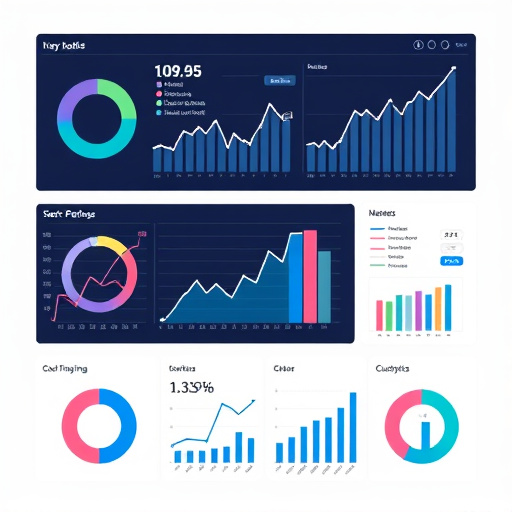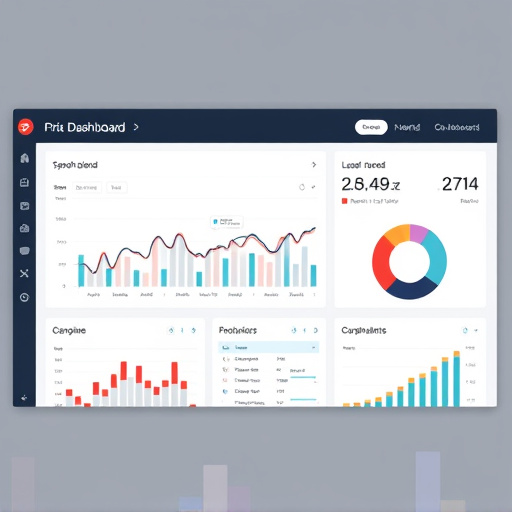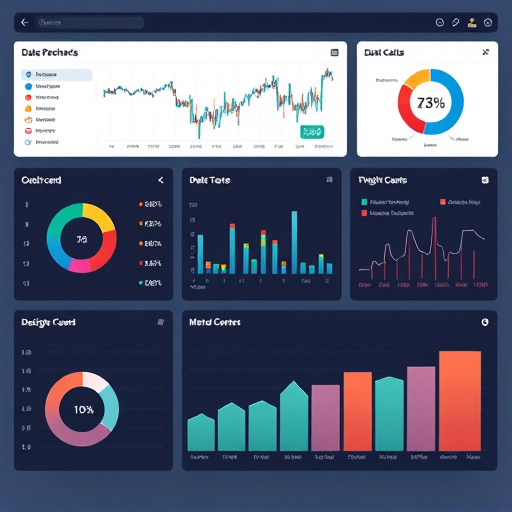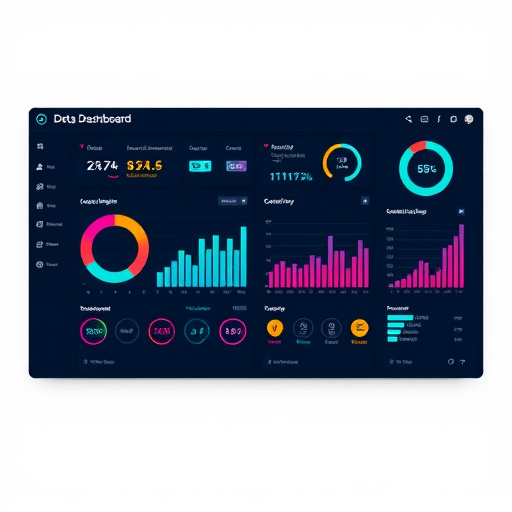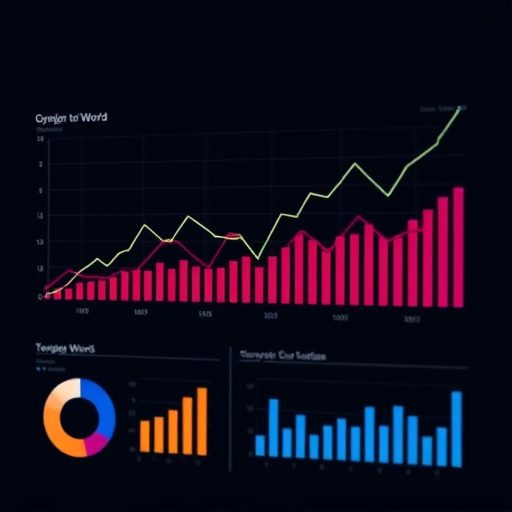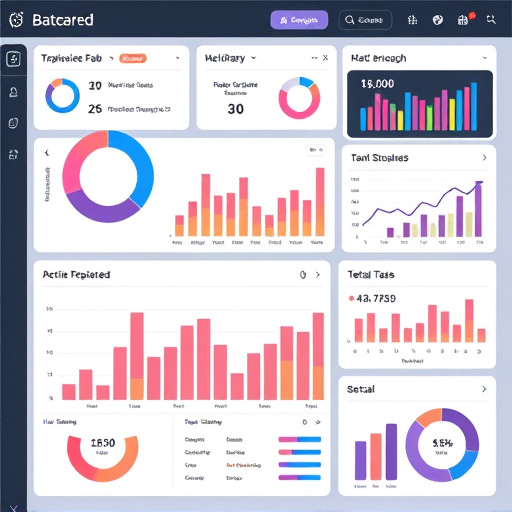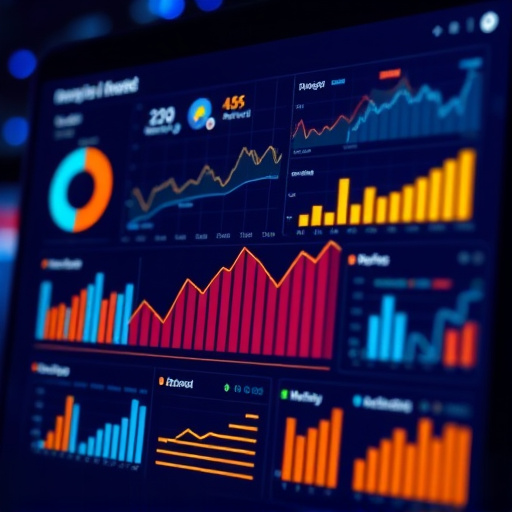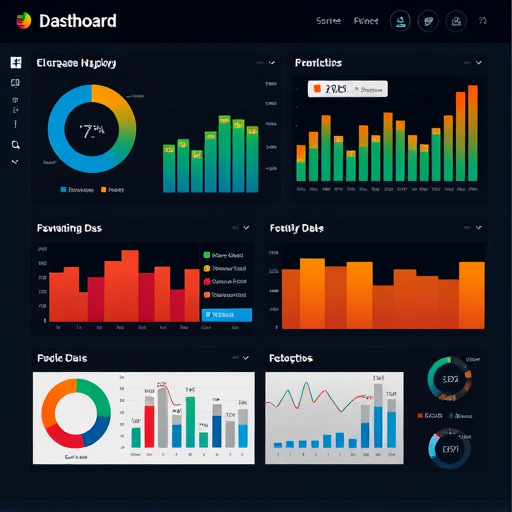Analytics NSW: Unlocking Data-Driven Insights for a Smarter Future
Introduction
Welcome to an in-depth exploration of Analytics NSW, a transformative concept that has captivated data enthusiasts, policymakers, and industry leaders worldwide. In this comprehensive article, we will embark on a journey through the intricate world of analytics, focusing specifically on its implementation and impact within New South Wales (NSW), Australia. By delving into various aspects, from its foundational elements to global implications, we aim to equip readers with a profound understanding of Analytics NSW and its role in shaping a data-driven future.
Understanding Analytics NSW: Unveiling the Concept
Definition:
Analytics NSW refers to the practice of extracting valuable insights and knowledge from data within the context of New South Wales’ unique economic, social, and technological landscape. It involves a systematic approach to analyzing structured and unstructured data to drive informed decision-making, enhance efficiency, and foster innovation across various sectors.
Core Components:
- Data Collection: Gathering relevant data from diverse sources, including government databases, sensor networks, customer interactions, and social media platforms.
- Data Processing: Cleaning, integrating, and transforming raw data into structured formats suitable for analysis.
- Advanced Analytics Techniques: Utilizing statistical modeling, machine learning algorithms, predictive analytics, and data mining to uncover hidden patterns and relationships.
- Visualization and Reporting: Presenting complex findings in accessible formats, such as dashboards, graphs, and reports, to facilitate comprehension and enable data-driven actions.
- Interpretation and Strategy: Translating analytical insights into actionable plans, strategies, and policies to address specific business, social, or environmental challenges.
Historical Context:
The concept of analytics has evolved significantly over the years, driven by technological advancements and the increasing availability of large-scale data. In NSW, the journey towards Analytics NSW can be traced back to the early 2010s when the state government recognized the potential of data analytics to drive policy decisions and improve public services. This led to the establishment of dedicated data centers, initiatives to open up government datasets, and partnerships with academic institutions and private companies to develop advanced analytical capabilities.
Global Impact and Trends: A Connected World of Analytics
International Influence:
Analytics NSW is not an isolated phenomenon; it is deeply intertwined with global trends and developments in the field of data analytics. The international community’s focus on big data, artificial intelligence (AI), and machine learning has significantly influenced the evolution and adoption of Analytics NSW. NSW, being a major economic hub, has actively participated in this global conversation, contributing to and benefiting from the exchange of knowledge and best practices.
Key Global Trends:
- Data Democratization: The democratization of data access and analytics tools enables more organizations, including SMEs and startups, to leverage data for growth and innovation.
- AI Integration: Artificial intelligence continues to be a game-changer, with AI algorithms enhancing predictive capabilities, automating processes, and improving decision accuracy.
- Edge Computing: The rise of edge computing allows for real-time data processing at the source, reducing latency and enabling more efficient analytics for applications like IoT (Internet of Things) devices.
- Data Privacy and Ethics: Global discussions around data privacy regulations, such as GDPR (General Data Protection Regulation), have prompted organizations to adopt ethical data handling practices, impacting how Analytics NSW is implemented.
Regional Impact:
- Asia-Pacific: The Asia-Pacific region, including Australia, has emerged as a hub for analytics innovation. Countries like Japan and South Korea are known for their advanced robotics and AI technologies, which influence the development of Analytics NSW.
- North America: The United States’ Silicon Valley is a global center for tech innovation, fostering collaborations that contribute to the growth of analytics practices worldwide, including in NSW.
- Europe: With stringent data privacy laws, Europe has driven discussions on ethical data use, influencing how Analytics NSW respects and utilizes personal information.
Economic Considerations: Data as an Asset
Market Dynamics:
Analytics NSW plays a pivotal role in shaping the economic landscape of NSW by driving efficiency, productivity, and innovation across various sectors. The market for analytics services and solutions is growing, attracting investments from both local and international players. This growth is fueled by the increasing recognition of data as a valuable asset and the need to derive actionable insights from vast datasets.
Investment Patterns:
- Government Initiatives: NSW government agencies invest in analytics infrastructure and programs to improve service delivery, policy formulation, and urban planning.
- Private Sector Adoption: Major corporations, including financial services, healthcare, and retail businesses, are embracing Analytics NSW to gain competitive advantages, optimize operations, and personalize customer experiences.
- Startup Ecosystem: The state’s thriving startup culture leverages analytics for product development, market analysis, and predictive modeling, fostering innovation and creating new job opportunities.
Role in Economic Systems:
Analytics NSW contributes to economic growth and stability through:
- Efficiency Gains: Optimizing processes and operations leads to cost savings and improved productivity, enhancing the competitiveness of businesses.
- Data-Driven Decision Making: Informed decision-making reduces risks and encourages strategic investments, fostering a robust business environment.
- Job Creation: The analytics sector itself creates high-skill jobs, contributing to skilled migration and a talent-rich workforce.
- Export Potential: NSW’s expertise in Analytics NSW can be exported globally, positioning the state as a leader in data-driven solutions.
Technological Advancements: Powering the Future of Analytics
Significance of Technology:
Technological advancements are the lifeblood of Analytics NSW, enabling more sophisticated analysis and delivering insights at unprecedented speeds. The rapid evolution of technology has expanded the capabilities of analytics tools, making them more accessible, user-friendly, and powerful.
Key Technological Milestones:
- Cloud Computing: Cloud-based analytics platforms offer scalable resources, cost savings, and improved collaboration, enabling organizations to access advanced analytics without substantial upfront investments.
- Advanced Analytics Tools: The proliferation of machine learning, natural language processing (NLP), and predictive analytics tools has enhanced the depth and breadth of data analysis.
- Internet of Things (IoT): IoT devices generate vast amounts of real-time data, providing valuable insights for industries like healthcare, agriculture, and smart cities.
- Data Visualization: Interactive dashboards and visualization tools make complex data more accessible, enabling better comprehension and decision-making at all levels.
- Blockchain: Blockchain technology offers secure and transparent data sharing, with potential applications in supply chain management, voting systems, and digital identity verification.
Future Technologies:
- Quantum Computing: This emerging field promises to revolutionize analytics by solving complex optimization problems exponentially faster.
- AI Ethics and Explaniability: As AI becomes more pervasive, there is a growing need for explainable AI models to ensure transparency and build trust in analytical outcomes.
- Edge Computing and 5G: The combination of edge computing and 5G networks enables low-latency data processing, opening new possibilities for real-time analytics applications.
Policy and Regulation: Navigating the Legal Landscape
Key Policies and Regulations:
- NSW Data Management Policy: This policy outlines guidelines for managing government data, emphasizing open access, interoperability, and security. It ensures that data is used ethically and responsibly while promoting its value to drive innovation.
- Australian Privacy Principles (APP): The APPs are national privacy standards that regulate the handling of personal information, including data collected and analyzed within Analytics NSW initiatives.
- Intellectual Property Laws: These laws protect the proprietary rights of organizations that develop advanced analytics tools and technologies, fostering innovation while ensuring fair competition.
- Cybersecurity Regulations: With increasing digital connectivity, cybersecurity measures are crucial to safeguard data assets and protect against potential cyber threats during the analytics process.
Influence on Analytics NSW Development:
- Data Governance: Effective policies ensure that data is governed responsibly, promoting trust among citizens, businesses, and government agencies.
- Incentives and Support: Government incentives and grants encourage organizations to invest in analytics infrastructure and talent development.
- Ethical Considerations: Regulations prompt developers and users of analytics tools to consider the ethical implications of their work, ensuring fairness and non-discrimination.
- International Compliance: NSW’s adherence to national privacy standards facilitates data sharing across borders, fostering global collaborations in analytics research.
Challenges and Criticisms: Overcoming Barriers
Main Challenges:
- Data Silos: Data is often fragmented across different departments and organizations, making it challenging to gain a comprehensive view and derive meaningful insights.
- Skill Shortage: The demand for skilled professionals in analytics exceeds the current talent pool, creating a skills gap that hinders the widespread adoption of advanced analytics.
- Data Privacy and Security: As analytics relies on large-scale data, ensuring privacy and security remains a significant concern, requiring robust legal frameworks and technical solutions.
- Ethical Use of Data: The potential for biased algorithms and discriminatory outcomes necessitates careful consideration of ethical implications during the development and deployment of analytics tools.
Criticisms and Solutions:
- Lack of Standardization: Critics argue that the lack of standardized data formats and analytics methodologies creates compatibility issues. A collaborative approach, involving government, academia, and industry, can develop best practices and standards to address this challenge.
- Data Quality: Inaccurate or incomplete data can lead to misleading insights. Implementing data quality control measures and promoting data cleaning processes are essential to ensuring the reliability of analytical findings.
- Bias in Algorithms: To combat algorithmic bias, diverse teams should be involved in developing analytics solutions, considering various perspectives during model training and testing phases.
- Transparency and Explainability: As AI becomes more integrated into Analytics NSW, there is a growing need for explainable AI models to build trust among users and stakeholders.
Case Studies: Real-World Applications of Analytics NSW
Case Study 1: Smart City Transportation
The City of Sydney implemented an analytics system to optimize traffic flow and reduce congestion. By analyzing real-time data from sensors, cameras, and GPS devices, the city’s transport authorities could identify traffic hotspots, predict travel times, and adjust signal timings accordingly. This resulted in reduced commute times, decreased emissions, and improved road safety. The case highlights how Analytics NSW can transform urban mobility, making cities more livable and sustainable.
Case Study 2: Precision Agriculture in Regional NSW
In the Northern Tablelands of NSW, farmers are leveraging analytics to improve crop yields and productivity. By collecting data from satellites, drones, and on-farm sensors, agricultural scientists can provide tailored recommendations for irrigation, fertilization, and pest control. This precision agriculture approach has led to significant cost savings, reduced environmental impact, and improved crop quality.
Case Study 3: Healthcare Analytics for Elderly Care
A major NSW hospital network utilized analytics to enhance the care provided to elderly patients. By analyzing patient records, medication adherence data, and sensor-based vital signs, healthcare providers could predict readmission risks, optimize staffing levels, and improve overall care quality. This case demonstrates how Analytics NSW can contribute to better healthcare outcomes and more efficient resource allocation.
Future Prospects: Embracing Emerging Trends
Potential Growth Areas:
- Healthcare Analytics: With an aging population, analytics in healthcare is poised for significant growth, focusing on personalized medicine, disease prediction, and efficient delivery of care services.
- Smart Cities and Urban Planning: Analytics NSW will play a pivotal role in shaping the future of cities, addressing challenges related to traffic management, energy consumption, waste reduction, and urban development.
- Agriculture and Food Security: The agricultural sector can benefit from advanced analytics for precision farming, supply chain optimization, and ensuring food security through efficient resource allocation.
- Education and Skill Development: Analytics can enhance educational outcomes by personalizing learning experiences, predicting student performance, and optimizing teacher allocation.
Emerging Trends to Watch:
- Hyper-Personalized Marketing: Using analytics to create highly tailored marketing campaigns, catering to individual consumer preferences, will become more prevalent.
- Predictive Maintenance in Industry: Analytics can predict equipment failures, reducing downtime and maintenance costs for businesses.
- AI-Driven Healthcare Diagnostics: Artificial intelligence algorithms are set to revolutionize medical imaging and diagnostic processes, leading to faster and more accurate patient assessments.
- Blockchain for Supply Chain Transparency: Blockchain technology will enhance supply chain visibility, ensuring product authenticity and traceability.
Conclusion: Shaping a Data-Driven Future in NSW
Analytics NSW stands as a testament to the transformative power of data analytics, offering unprecedented opportunities for innovation, efficiency, and informed decision-making. From its foundational elements to cutting-edge technologies, Analytics NSW has evolved into a powerful tool that shapes various aspects of life in NSW. By embracing global trends, navigating regulatory landscapes, and overcoming challenges, the state is well-positioned to lead the charge in data-driven development.
As we look ahead, the future of Analytics NSW promises exciting possibilities. With continued investment, talent development, and a commitment to ethical practices, the state can become a global hub for analytics innovation, driving economic growth and social progress while ensuring that data remains a responsible and equitable asset for all residents.
FAQ Section: Answering Common Queries
Q1: How does Analytics NSW differ from traditional data analysis?
A1: Analytics NSW goes beyond basic data analysis by incorporating advanced techniques like machine learning, predictive modeling, and real-time processing. It focuses on deriving actionable insights to drive strategic decision-making, unlike traditional data analysis which often serves more descriptive purposes.
Q2: What are the key benefits of implementing Analytics NSW in businesses?
A2: Businesses can expect improved operational efficiency, enhanced customer experiences through personalized offerings, better risk management, and strategic advantages through data-driven insights. Analytics NSW enables companies to optimize processes, increase profitability, and gain a competitive edge.
Q3: How does data privacy impact the development of Analytics NSW?
A3: Data privacy is a critical consideration in Analytics NSW. Strict regulations like the APPs ensure that personal information is handled securely and responsibly. Developers must design systems with privacy by design principles, minimizing data collection and ensuring transparency in data processing practices.
Q4: What role does AI play in shaping the future of Analytics NSW?
A4: Artificial intelligence is a game-changer in Analytics NSW, enabling more sophisticated predictions, automated decision-making, and personalized recommendations. AI algorithms can process vast amounts of data quickly, leading to improved efficiency and new insights across various sectors. However, ethical considerations are essential to ensure fair and unbiased AI models.
Q5: How can small businesses in NSW get started with Analytics NSW?
A5: Small businesses can begin by identifying key areas where data-driven insights would be valuable, such as customer behavior analysis or operational efficiency. They can leverage cloud-based analytics platforms, which offer scalable and cost-effective solutions. Local government and industry associations also provide resources and support to help small businesses embrace Analytics NSW.
The Reviewly Local Search Dashboard is a powerful tool for businesses to analyze online brand interactions and local SEO strategies. It provides insights into search rankings, CTRs, and customer feedback trends, helping businesses make data-driv…….
Continue Reading
The Reviewly Local Search platform equips Australian businesses, especially in New South Wales (NSW), with powerful analytics tools to boost local visibility and engagement. By tracking real-time data on customer behavior and local trends, busin…….
Continue Reading
The Reviewly Local Search dashboard is a powerful tool for businesses, especially locals, to monitor and manage online reputation effectively by aggregating customer reviews from diverse platforms. It offers insights into customer experiences an…….
Continue Reading
The Reviewly Local Search dashboard offers businesses a powerful tool for understanding and optimizing their local SEO performance by providing real-time data on review volume, ratings, and search metrics. Through intuitive sections like 'R…….
Continue Reading
In today's digital era, Analytics NSW is indispensable for businesses aiming to thrive in the competitive NSW market. By leveraging tools like Reviewly Local Search Analytics, companies can analyze customer behavior, local SEO trends, and d…….
Continue Reading
Reviewly Local Search Analytics is a powerful tool for businesses to understand their local customer base and market performance. By tracking online reviews, analyzing search trends, and identifying key metrics like review volume, ratings, and s…….
Continue Reading
Reviewly Local Search is a powerful platform that helps businesses analyze customer feedback and reviews from diverse sources, enabling data-driven decisions and enhancing local presence. By consolidating reviews, identifying trends, and providi…….
Continue Reading
Reviewly Local Search analytics is a powerful platform helping businesses understand online visibility and local customer behavior. By tracking keywords, monitoring competitors, analyzing trends, and reviewing consumer feedback, companies can op…….
Continue Reading
Reviewly Local Search is a powerful tool for businesses aiming to dominate local markets. It offers in-depth consumer behavior analysis, helping companies optimize their online presence and tailor marketing strategies to specific areas. The intu…….
Continue Reading
The Reviewly Local Search Dashboard is a user-friendly tool that helps businesses manage and analyze customer reviews from various platforms, offering a centralized view of online reputation. By tracking key metrics like review volume and engage…….
Continue Reading
In today's digital landscape, success for New South Wales (NSW) businesses hinges on utilizing Analytics NSW tools like Reviewly Local Search. These platforms provide vital insights into local market trends, consumer behavior, and competito…….
Continue Reading
“Unleash the power of localized insights with Reviewly’s Local Search tools, your ultimate solution for benchmarking business performance across different locations. This article guides you through an in-depth exploration of Reviewly’s capabilit…….
Continue Reading
Data exploration is key for businesses in NSW aiming to succeed, and Analytics NSW, powered by Reviewly Local Search, offers a game-changing solution. This platform transforms raw data into valuable insights on customer trends and local market d…….
Continue Reading
Businesses in New South Wales (NSW) can boost their online success and outperform competitors using Analytics NSW tools like Reviewly Local Search. By analyzing data on consumer behavior, search volume, keyword performance, click-through rates,…….
Continue Reading
Performance exploration powered by Analytics NSW gives businesses a competitive edge by offering valuable insights into operational efficiency, customer behavior, and market trends. Local search tools like Analytics NSW help optimize online pres…….
Continue Reading
The Reviewly Local Search platform is a powerful tool for businesses in NSW, designed to boost online visibility and connect with local customers. It offers an intuitive interface for managing and optimizing digital presence, focusing on locatio…….
Continue Reading
Reviewly Local Search analytics provides businesses with vital insights into their local customer base, including search trends, competition, and consumer behavior. By analyzing real-time data on keywords, search volumes, and reviews, companies…….
Continue Reading
